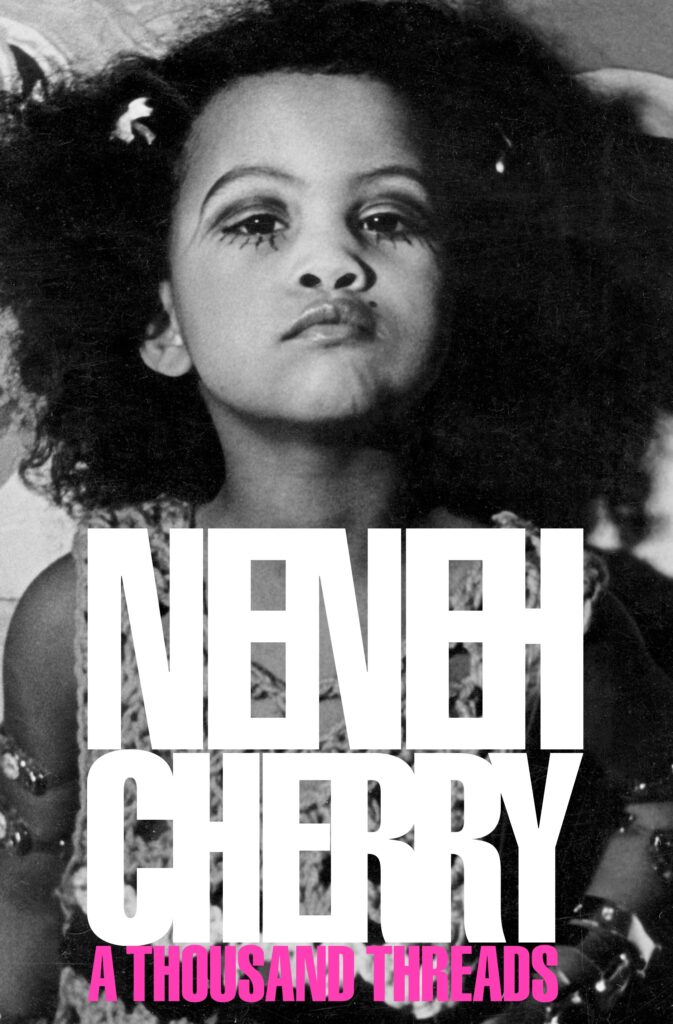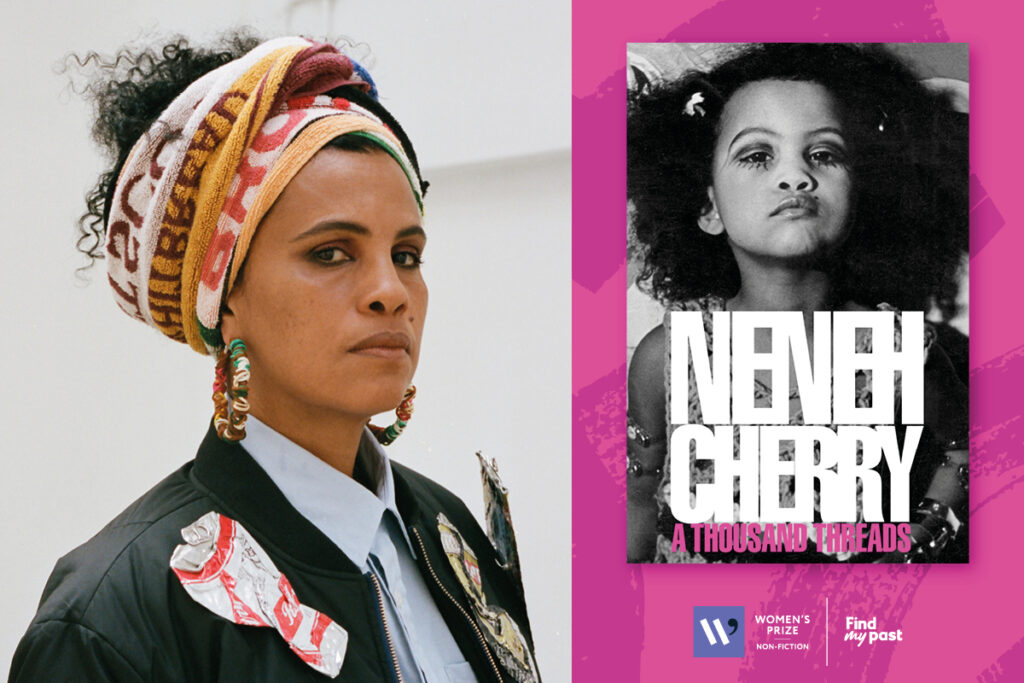A Thousand Threads by Neneh Cherry provides intimate behind-the-scenes insight into Neneh Cherry’s life as a famous musician, as well as an activist, daughter, mother and friend.
Longlisted for the 2025 Women’s Prize for Non-Fiction, judge Dr Elizabeth-Jane Burnett says the book is: ‘A unique portrait of a life lived fully creatively, not just a personal history but a fascinating glimpse into different music and performance.’
To find out more about the book we spoke to Neneh about her writing, research and current reads.
How would you describe your book to a new reader?
I find this question difficult to answer sometimes. It’s a book about my life. When I started writing I was driven by a need to honour the passage, not just my journey but the journey of those who came before me, both good and bad. I think maybe it’s not a typical music biography. People who have read the book have said that it’s a quite poetic book — I guess that’s the influence of my songwriting — and quite a sensory read, and for sure I tried to capture the smells, sounds, colours, sights and feel of all the events that have come to form the tapestry of my life. It makes me really happy to hear that they’ve picked up on these elements.
Did you have any revelation moments when writing your book? When the narrative and your objectives all fell into place?
I don’t remember a moment where everything crystallised, but I often had a profound sense of how many things were connected to each other. One thing, even from generations ago, has lead to another, like a domino effect. Also, I realised how vital and important the people at the centre of the story are to me. It’s not just my story. I am who I am because of so many others.
What is the one thing you’d like a reader to take away from reading your book?
The idea that someone might have a visceral experience that resonates with them and creates a world for that individual reader is an amazing thought (like so many books have for me). Also, I love the idea of the book being passed on from person to person or like a hand-me-down, which is another reason why I wrote the book in the first place: to have a record of my life for my children and grandchildren! The unique travelling life of a book is one of the most wonderful thoughts to me.
How did you go about researching your book? What resources did you find the most helpful?
I started the story from my own family history. I found the living elders and spoke to them about details, memories, our history. I started there and worked outwards, incorporating material artefacts: photos, notebooks/journals and family heirlooms. Luckily my daughter Naima has been archiving the family legacy, an endless task but so helpful. We found endless amounts of information and inspiration this way. Also, many ideas, thoughts and memories grew just from conversations in the kitchen surrounded by my family and friends.
Which female non-fiction author would you say has impacted your work the most?
Nikki Giovanni
What is the best piece of writing advice you have ever received?
In my case, I had no desire to indulge in gossip and sensationalist tales but searched for a dignified way to tell my truths. My friend Andrea Oliver told me: ‘You don’t need to be out in the street with your whole ass out!’ That was pretty helpful!
Is there a non-fiction book you recommend all the time? If so, what is it and why do you recommend it?
Woman at Point Zero by Nawal el Saadawi. The book is about a young female prostitute in jail awaiting her death sentence for killing her pimp. The writer meets her in her cell in the days before her execution. As her story evolves you start to understand that, for this woman, killing that man was the most liberating empowering thing and she felt no remorse. It’s a truly amazing read.
What are you currently reading?
Naked Portrait: A Memoir of Lucian Freud by Rose Boyt









